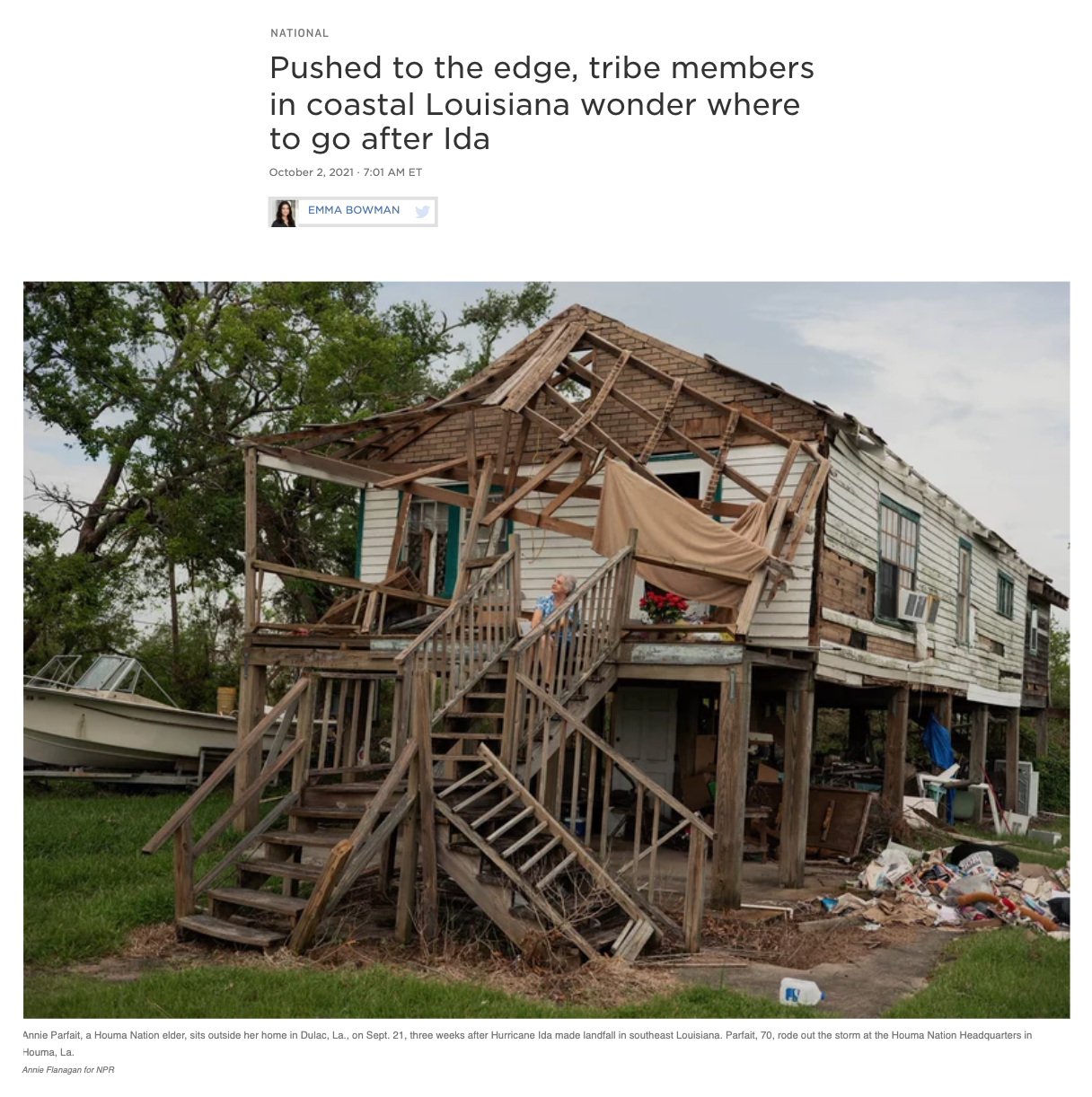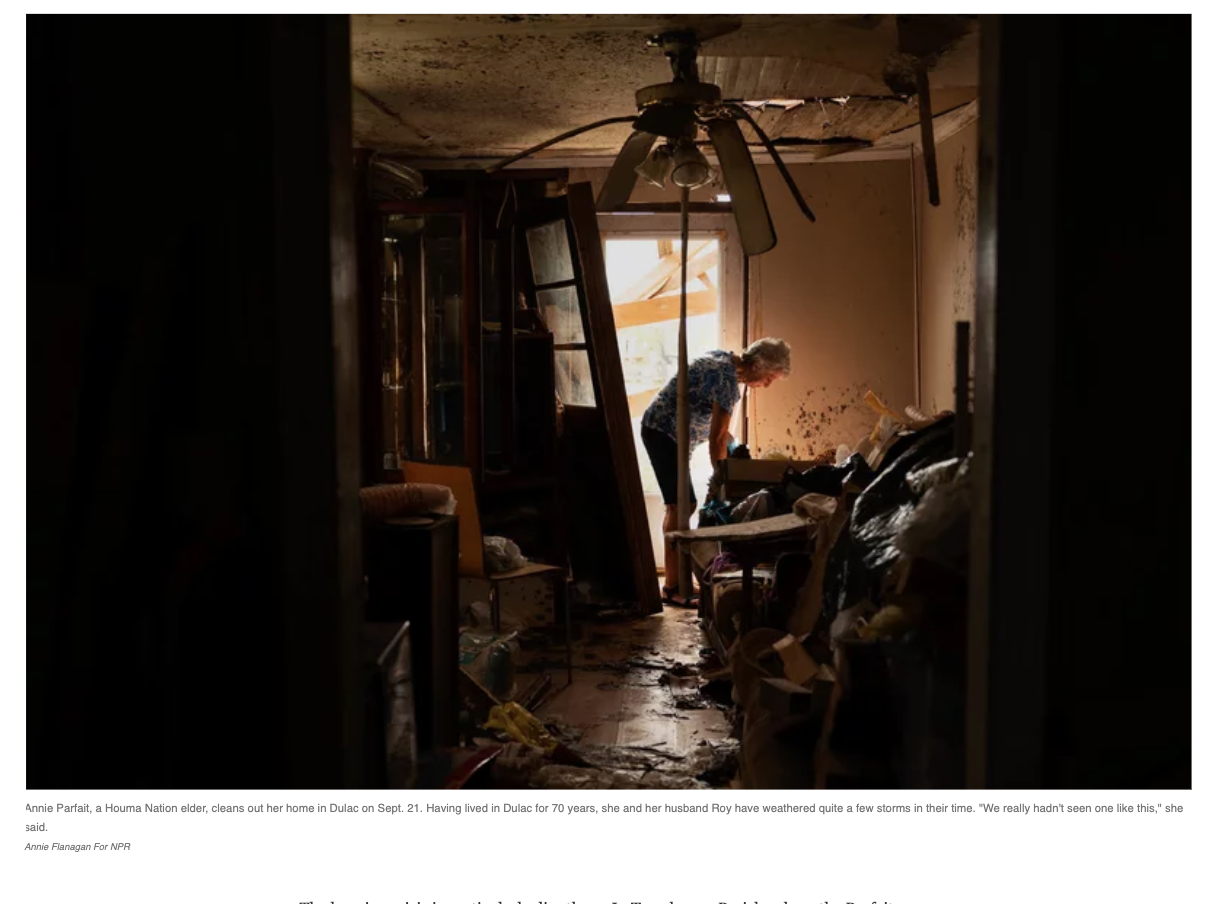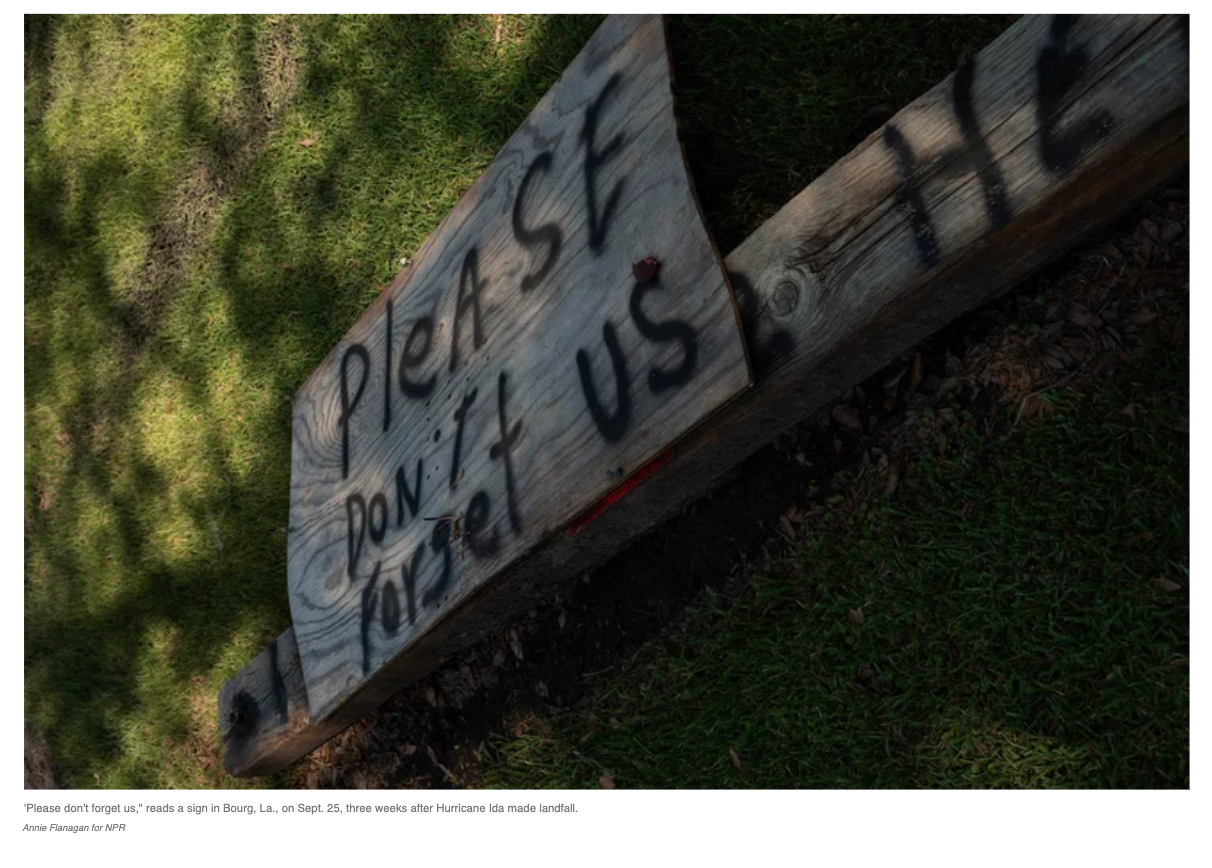Photo Edit for NPR: Pushed to the edge, tribe members in coastal Louisiana wonder where to go after Ida
michele abercrombie
Jan 24, 2022
Photography by @annieflanagan ; Text by Emma Bowman/NPR ; Graphic by Connie Hanzhang Jin/NPR
More than a month after Hurricane Ida battered Louisiana's coast, Native elders of the Houma tribe Roy and Annie Parfait still could’t go home.
When Ida slammed the coast with winds clocked upwards of 160 mph, it devastated the fishing town located 70 miles from New Orleans. Across southeast Louisiana, gusts sliced open roofs, tore down power lines and overturned mobile homes and boats. Although the levees largely held back major flooding, entire houses blew away.
Having lived in Dulac for 70 years, the Parfaits have weathered quite a few storms in their time, including Hurricane Katrina.
"We really hadn't seen one like this," Annie said.
Unlike the 574 Native American tribes currently recognized by the U.S. government, when disaster strikes, the Houma people do not receive direct federal help.
"Whenever a storm or something like this hits, the tribe just has to go through the regular channels like any other private citizen would," says Adam Crepelle , an assistant law professor at George Mason University, who is a Houma tribal member. "Whereas if it was federally recognized, it would be eligible for FEMA money and other federal programs to help with recovery."
Read the full story at NPR.org
Thank you to Annie Flanagan, Emma Bowman, Connie Hanzhang Jin, Avie Schneider and Nicole Werbeck
1,641






